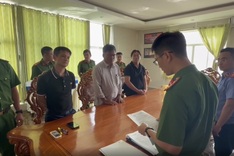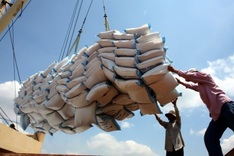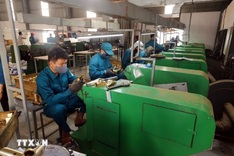>> Efforts set forth to stabilise land prices in 2011
Vietnam is facing more realty corruption as prices of land, which is allocated to investors, are said to be unreasonable.
 |
| Infrastructure projects subject to enormous corruption |
This came after a recent statement by the World Bank (WB) on the reasons for land corruption in the country.
The bank stated that land pricing without supervision and inspection has fostered corruption. At present, Vietnam’s provincial agencies have de facto responsibly for land pricing and allocations, despite national land price frame laws. The fact that there is no independent supervision or enforcement have lead to ‘unofficial agreements’.
These have tended to happen in one of two ways. Either investors will bribe officials to get absurdly low prices for land, or both the investors and provincial authorities will share in the profits after the construction and sale. In both cases, a great amount of money is made as a result of the disparity of the official price and the actual market value.
Bribery is often involved in the land pricing process, the bank noted.
Land management and allocations schemes such as this result in huge losses in state revenue.
In the past, one of the mechanisms of corruption earned a title: Land Exchanged for Infrastructure. In this scheme, localities will sell land to investors far below the prices set by the national government. Then the private investor will pay for the construction and maintenance of the property. Afterwards, the property will be sold back to the locality at exorbitant rates.
In reaction to this type of corruption, the Government changed its regulations in 2003. But corruption still manages to find its means. Specifically, they have fallen back on the Build Operate Transfer (BOT) model.
One of the worst examples occurred in the northern province of Hai Duong in 2002. In this case, the provincial government approved of a transaction where the land investor paid a fee of VND40,000 (USD2) per square metre in order to build a housing development. Afterwards, the development was sold for between VND2.8 million and VND2.9 million (USD140-USD145) per square metre. The loss to state revenues amounted to VND9 trillion (USD450,000).
However, corruption still exists in the land allocation process.
Under BOT infrastructure projects, investors are granted land to realise their investment. Investors will sell their assets in order to recoup their investments, operating and maintenance expenses.
The lack of anti-corruption mechanism during pricing of land and built infrastructure has resulted in dishonesty. Investors often sell their assets at a much higher price than what was approved by the provincial government. The official prices may only account for 40% to 70% of the actual market price.
The lack of oversight in land pricing and allocation has been blamed for the corruption. The World Bank has recommended that Vietnam change it’s laws to allow more competition in the appraisal market.




















